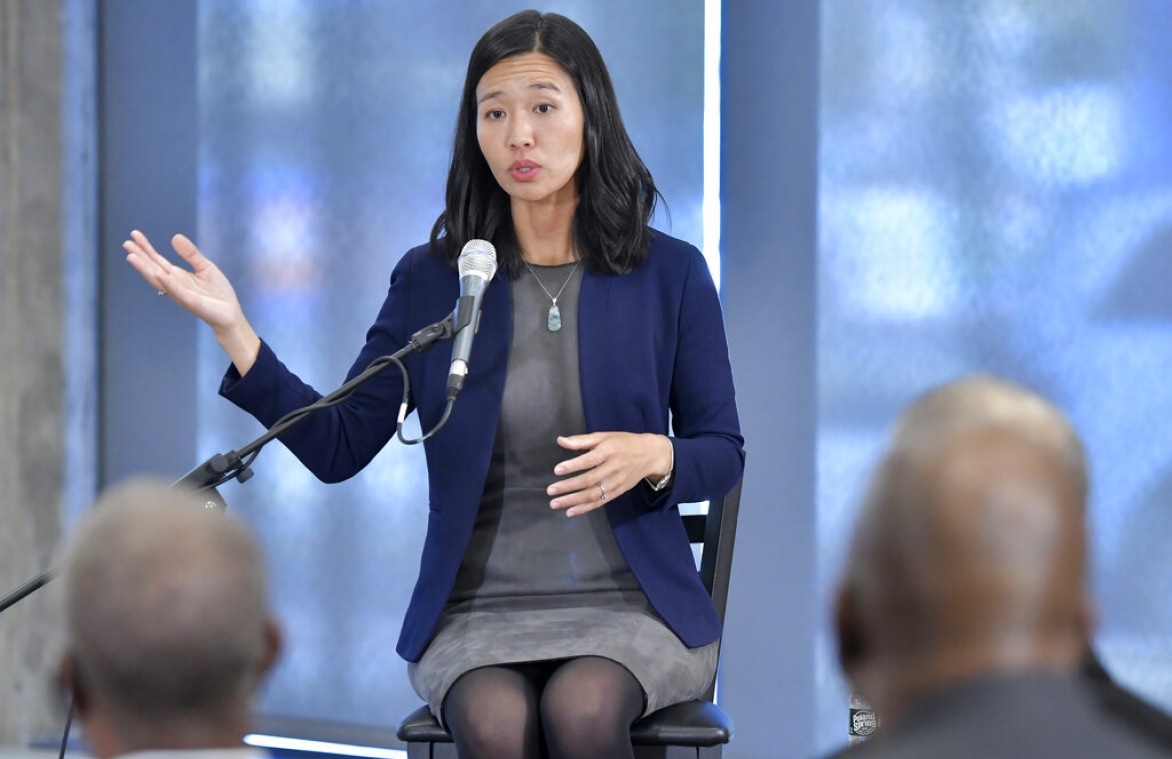By STEVE LeBLANC, Associated Press
BOSTON (AP) — An ordinance limiting the hours during which protesters can gather in residential neighborhoods won the backing of the Boston City Council March 30 in a victory for Mayor Michelle Wu, who has been targeted in the early morning hours outside her home by people protesting her city employee coronavirus vaccine mandate.
Wu filed the proposal in February. The measure would allow protesters to demonstrate outside an individual home only between 9 a.m. and 9 p.m. It would protect any home, not just those of elected officials.
Boston’s current noise restrictions have limited demonstrators from engaging in loud protests before 7 a.m. or after 11 p.m. The new ordinance would narrow that window.
The ordinance was approved by a 9-4 vote.
The proposal would not affect marches or protests passing through residential areas that are not aimed at a particular home. It defines targeted residential picketing as picketing, protesting or demonstrating, with or without signs, aimed at one or more occupants of a particular residence.
Protesters have been shouting loudly, banging drums and blowing whistles outside the mayor’s Roslindale home as early as 7 a.m., disrupting not only the mayor’s family, but also her neighbors, according to administration officials.
Critics have said that the new restrictions could curb people’s First Amendment rights.
Wu said she understands the frustration some may feel at city government but said she doesn’t want to let a “toxic” discourse crowd out participation in civic life.
“You can’t take things personally in jobs like this,” Wu, a Democrat, told The Associated Press hours before the council approved the measure. “At the same time it does seem like in the last few years especially we’ve seen a normalizing of behavior that is toxic and harmful and personally abusive to many, many people.”
Wu added that from her own experience and what she has heard from others in government “women and women of color in particular often have the most racialized and gender-based versions of that intensity.”
Ricardo Arroyo, a Democrat and city councilor who voted for the amendment, said the measure does not take away the right to protest.
“This ordinance balances the needs of our residents to have an expectation of privacy and peace in their homes in the early morning hours with the right to protest,” Arroyo said in a written statement. “It is narrowly tailored with reasonable limitations on time, place, and manner of speech while being content neutral.”
Violators could face fines starting at $100 for a first offense.
The Free Speech Center newsletter offers a digest of First Amendment and news media-related news every other week. Subscribe for free here: https://bit.ly/3kG9uiJ

